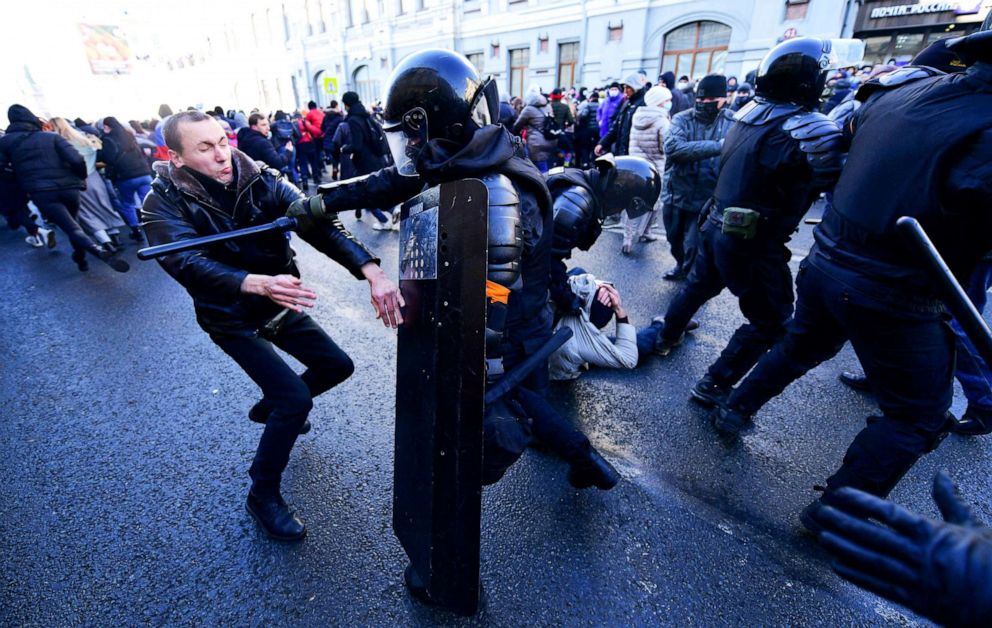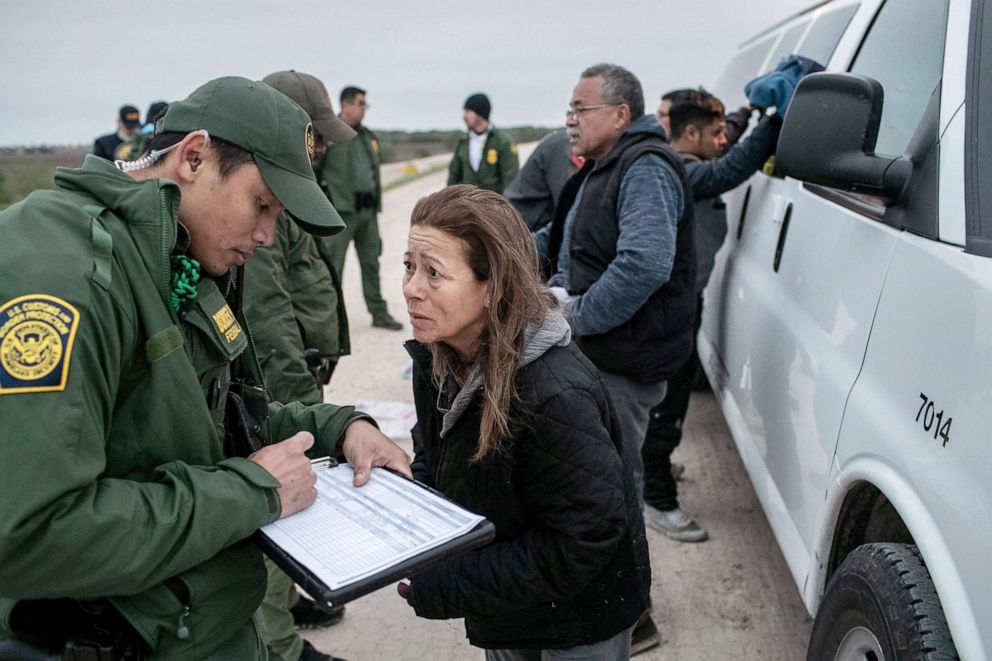State Department condemns arrests of protesters in Russia
The U.S. Department of State "strongly" condemned the mass arrests in Russia of protesters in a statement Saturday.
The department called for the release of the protesters and Kremlin critic Alexey Navalny, who was jailed last week after he returned to the country for the first time since recovering from poisoning with a nerve agent.

"The United States strongly condemns the use of harsh tactics against protesters and journalists this weekend in cities throughout Russia," State Department spokesperson Ned Price said in the statement. "The United States will stand shoulder-to-shoulder with our allies and partners in defense of human rights -- whether in Russia or wherever they come under threat."
Tens of thousands of people joined protests across dozens of cities in Russia Saturday. By early evening, police had detained over 1,600 people, according to OVD-Info, a group that monitors arrests.
In its statement, the State Department criticized the growing state of repression in Russia, from harassing protesters to threatening social media platforms, and defended Russians’ rights to protest and to free and fair elections.
It also called on Russia to explain the use of a chemical weapon on its soil and to cooperate with an international investigation.
-ABC News' Connor Finnegan





